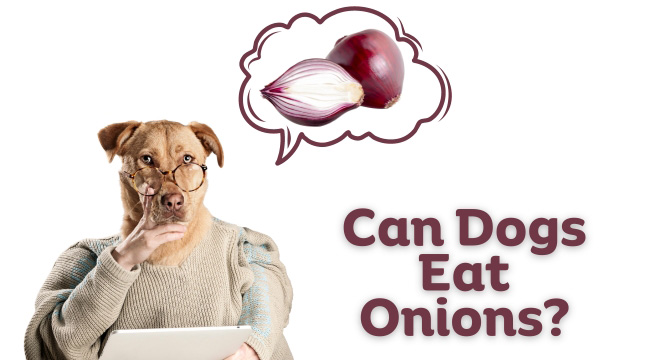
Onions are a common ingredient in many recipes, from soups to sauces, and they add a delicious flavor to our food. However, pet owners may wonder if it’s safe for their dogs to eat onions or foods that contain them. In this article, we’ll explore the potential risks of dogs consuming onions, the signs of onion toxicity in dogs, and what to do if your dog accidentally ingests onions.
Table of Contents
- Can Dogs Eat Onions?
- Can Dogs Eat Cooked Onions?
- Can Dogs Eat Broth Cooked with Onions?
- Symptoms of Onion Toxicity in Dogs
- Understanding Why Onions Are Bad for Dogs
- Which Types and Parts of Onions to Avoid
- How Much Onion Can Make a Dog Sick?
- Beware of These Foods Similar to Onions That Can Poison Your Dog
- What to Do if Your Dog Ate Onions?
- Diagnosing Onion Poisoning in Dogs
- Conclusion
Can Dogs Eat Onions?
Oh, definitely not! Onions are a big no-no for dogs. Even though they add that perfect zing to our meals, for our furry friends, they’re trouble. Onions, and actually anything in the onion family like garlic, shallots, and leeks, contain a compound that’s like kryptonite to dogs. It can damage their red blood cells, leading to a condition called hemolytic anemia. That’s a fancy way of saying it can make their red blood cells burst, which is as bad as it sounds.
So, no matter how adorably your pup might beg for a bite of your onion-laden dinner, it’s a hard pass. Keep those onions out of reach, and if you ever think your dog has snuck a bite, it’s straight to the vet. Better safe than sorry when it comes to our furry family members!
Related Post: Can Dogs Eat Funyuns?
Can Dogs Eat Cooked Onions?
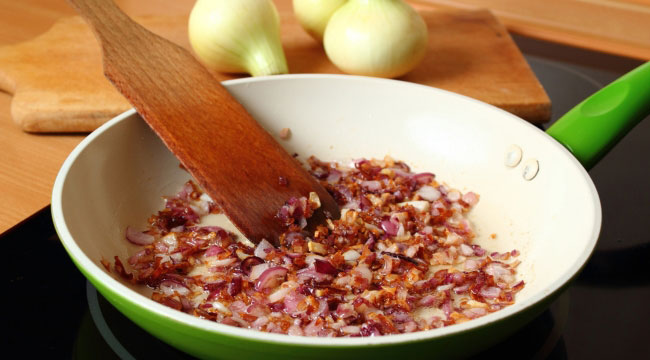
No, it is not safe for dogs to eat cooked onions. Onions, whether raw or cooked, contain compounds that can cause damage to a dog’s red blood cells and lead to anemia and other serious health complications. Even a small amount of onion can be toxic to dogs, and the symptoms may not appear immediately. Therefore, it is best to avoid feeding any onions to your canine companion, including cooked onions, to keep them healthy and safe.
Related Post: Can Dogs Eat Cheerios? Safe or Risky Snacking?
Can Dogs Eat Broth Cooked with Onions?
If you cook for your dog or share your food with them, make sure to avoid giving them anything that has been cooked with onions. This includes broth, which may contain onion as an ingredient.
If you buy pre-made broth, check the label for onions and choose a brand that doesn’t include them. Also, watch out for onion powder, which is often used in pre-made foods and can be harmful to dogs.
It’s important to note that all parts of the onion, including the juice, flesh, and leaves, can cause issues for dogs. So, it’s best to avoid cooking with onions or using onion powder when preparing food for your dog.
Related Post: Can Dogs Eat Acai? Exploring the Safety and Benefits
Symptoms of Onion Toxicity in Dogs
If your dog has eaten onions, they could show signs of illness within a day or two, but sometimes it takes several days for the symptoms to become apparent. The following symptoms can develop:
- Decreased appetite
- Pale gums
- Lethargy
- Weakness
- Collapse
- Red tinge to urine
- Vomiting and/or diarrhea
- Elevated heart rate
- Panting
If you notice your dog displaying any of the symptoms listed above, take them to the vet straight away for diagnosis and treatment. A speedy response can make the world of difference. Remember that even small amounts of onions can be dangerous for dogs, so it’s important to keep them out of reach and to always check the ingredients in any food you give to your furry friend.
Understanding Why Onions Are Bad for Dogs
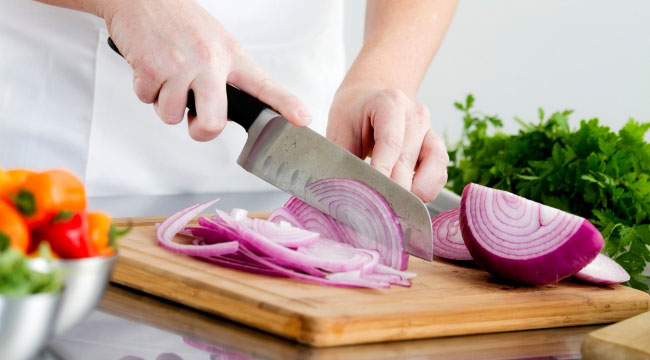
Onions are known to be one of the most dangerous human foods for dogs. The reason for this is the presence of a chemical compound called N-propyl disulfide which can be highly toxic for dogs.
This compound can bind to a dog’s red blood cells, causing oxidative damage and the eventual breakdown of the red blood cells, leading to hemolytic anemia. Red blood cells are critical for carrying oxygen to vital organs in the body, and when they are destroyed, it can lead to a variety of medical problems, including organ failure.
The toxicity of onions for dogs is well-known, and it is essential for pet owners to be aware of the danger and take steps to prevent their dogs from consuming any foods containing onions.
Related Post: Can Dogs Eat Couscous? How Much Is Safe?
Which Types and Parts of Onions to Avoid
Onions of all types, like white, yellow, red, and green onions, can be dangerous for dogs. This means that every part of the onion, including the leaves, flesh, skin, and juice, has toxins that can be poisonous to dogs. Dried or powdered onion is even more hazardous, as it is concentrated and can increase the risk of poisoning. It is also essential to know that whether you cook or serve the onion raw, it doesn’t make a difference; both ways can be equally harmful to your furry friend.
How Much Onion Can Make a Dog Sick?
Onions and other alliums are extremely harmful to dogs, and the amount required to cause serious health problems is much less than you might think. When a dog consumes more than 0.5% of their body weight in onions at one time, they can experience onion toxicity.
This means that even a small amount of onion or garlic can easily poison a dog, and smaller dogs are at an even greater risk. While a large breed may be able to tolerate a small bit of onion without issue, a small dog like a chihuahua can experience severe health symptoms from the same amount.
As a responsible dog owner, it is important to be aware of where you store your onions and ensure that they are always kept out of reach of your furry friend.
Also, keep him away from pizza, tomato sauce, Chinese food, or baby food. However, since we can’t always see what they put into their mouths, it would help if you keep your surroundings clean and your floor free from any food residue as dogs are inclined to lick anything they see.
Unlike grapes, where a small amount is toxic, onion toxicity depends on the number of onions your dog consumed. According to award-winning veterinarian Dr. Jeff Werber in his interview for Dogster, for onion toxicity to set in, dogs need to eat a huge volume of onions.
However, the problem lies in the fact that toxins can accumulate in the dog’s system, which could result in toxicity. Even if you don’t feed your dog onions in large quantities, if he has eaten the same over a prolonged period of time, he might get sick. This is what Dr. Werber refers to as the cumulative effect.
Related Post: Can Dogs Eat Acai?
Beware of These Foods Similar to Onions That Can Poison Your Dog
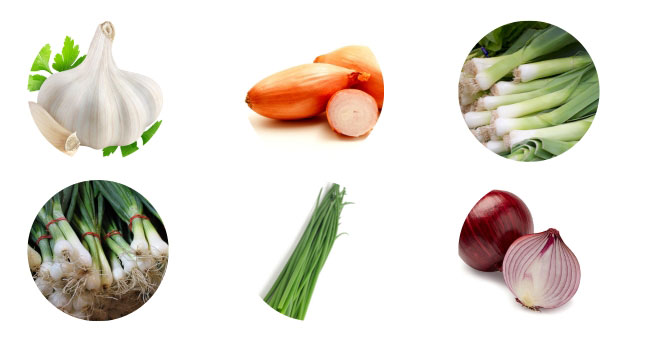
While onions are a well-known toxic food for dogs, it is important to note that other members of the Allium family can also be harmful. Garlic, shallots, leeks, scallions, and chives all contain N-propyl disulfide, the same chemical found in onions, which can cause oxidative damage to a dog’s red blood cells.
Garlic, in particular, has a higher concentration of this chemical, making it even more toxic than onions. It is crucial to check the labels of all human foods, as many contain onion, garlic, or their powder as an ingredient.
If your dog accidentally consumes any of these foods, even in small amounts, it is recommended to seek veterinary care immediately. As always, it is best to consult with your vet before introducing any new foods or snacks into your dog’s diet to ensure their safety and well-being.
Related Post: Can Dogs Eat Durian Safely?
What to Do if Your Dog Ate Onions?
If you’re not sure if the number of onions consumed by your dog is toxic but you’ve observed some symptoms of toxicity in him, it is best to consult with your veterinarian immediately. They can determine whether or not treatment will be necessary.
If treatment is indeed required, know that the treatment process can involve treating the co-occurring allergic reactions, using activated charcoal to treat poisoning, stomach flushing, vomit inducement, and gastric lavage carry-out. In the case of skin infection, your dog might need to be bathed and dried.
Aside from these treatment options, your veterinarian may suggest hydration of the dog by introducing more fluids into his bloodstream, thereby addressing possible damage to the liver. A blood transfusion might also be recommended when necessary.
Diagnosing Onion Poisoning in Dogs
Onion toxicity in dogs can be a serious issue and it’s important to get a proper diagnosis from a veterinarian. If you suspect that your dog has ingested onions, it’s important to inform your vet immediately. The vet will take a thorough history of your dog’s symptoms and will likely perform a physical examination.
The severity of the poisoning depends on the amount of onion ingested, so it is best not to wait for symptoms to appear before taking action. If it is a life-threatening emergency, contact your veterinarian or a nearby animal hospital right away. You may also want to induce vomiting to prevent further absorption of the onion toxins into your dog’s system, but it’s best to do this under the guidance of a veterinarian.
When you bring your dog to the veterinarian, they will likely conduct a physical exam and take a blood test to determine the level of toxicity. Treatment may involve inducing vomiting, administering activated charcoal to absorb the toxins, intravenous fluids to help flush out the toxins, and supportive care to manage symptoms such as nausea and vomiting. In severe cases, a blood transfusion may be necessary to replace the damaged red blood cells.
Prevention is always the best course of action, so it is important to keep onions and other Allium plants away from your dog’s reach. Check food labels and ingredients carefully before feeding your dog, and avoid giving them human foods that may contain onions or garlic. If you have any concerns or questions about your dog’s health or diet, consult with your veterinarian for advice.
Related Post: Can Dogs Eat Tuna?
Conclusion
In conclusion, it is not safe for dogs to consume onions in any form, including cooked, raw, or powdered. Onions contain compounds that can damage a dog’s red blood cells, leading to anemia and other serious health complications. Even a small amount of onion can be toxic to dogs, and the symptoms may not appear immediately. Therefore, it is best to avoid feeding onions to your canine companion and be cautious of any foods that may contain onions as an ingredient. If you suspect that your dog has ingested onions, seek veterinary care immediately to prevent any potential health issues. Ultimately, by being aware of the risks and taking preventative measures, you can keep your furry friend healthy and happy.
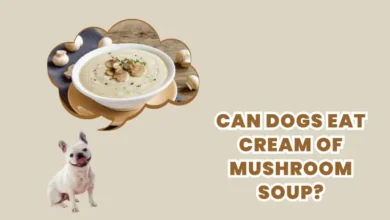



One Comment